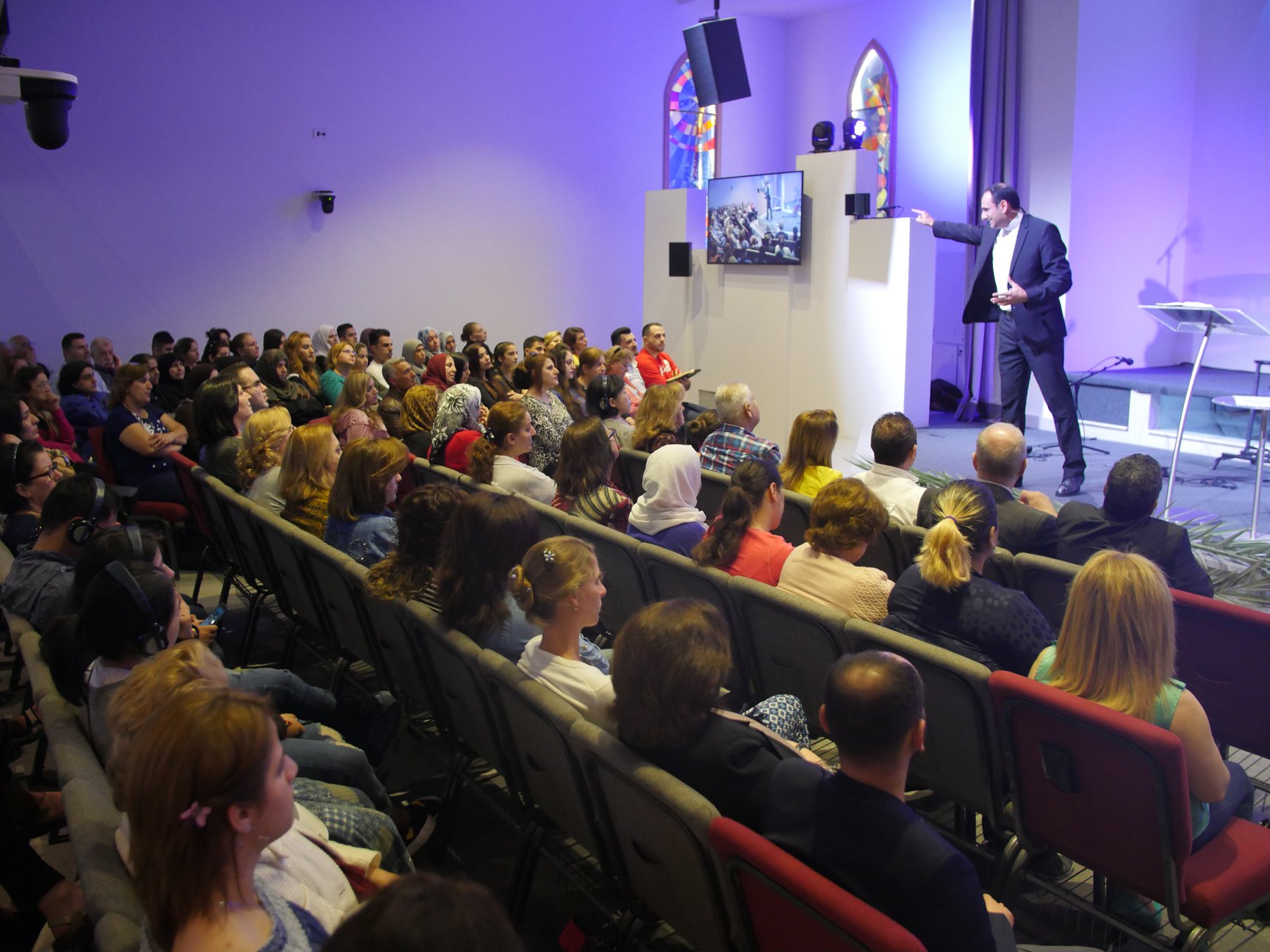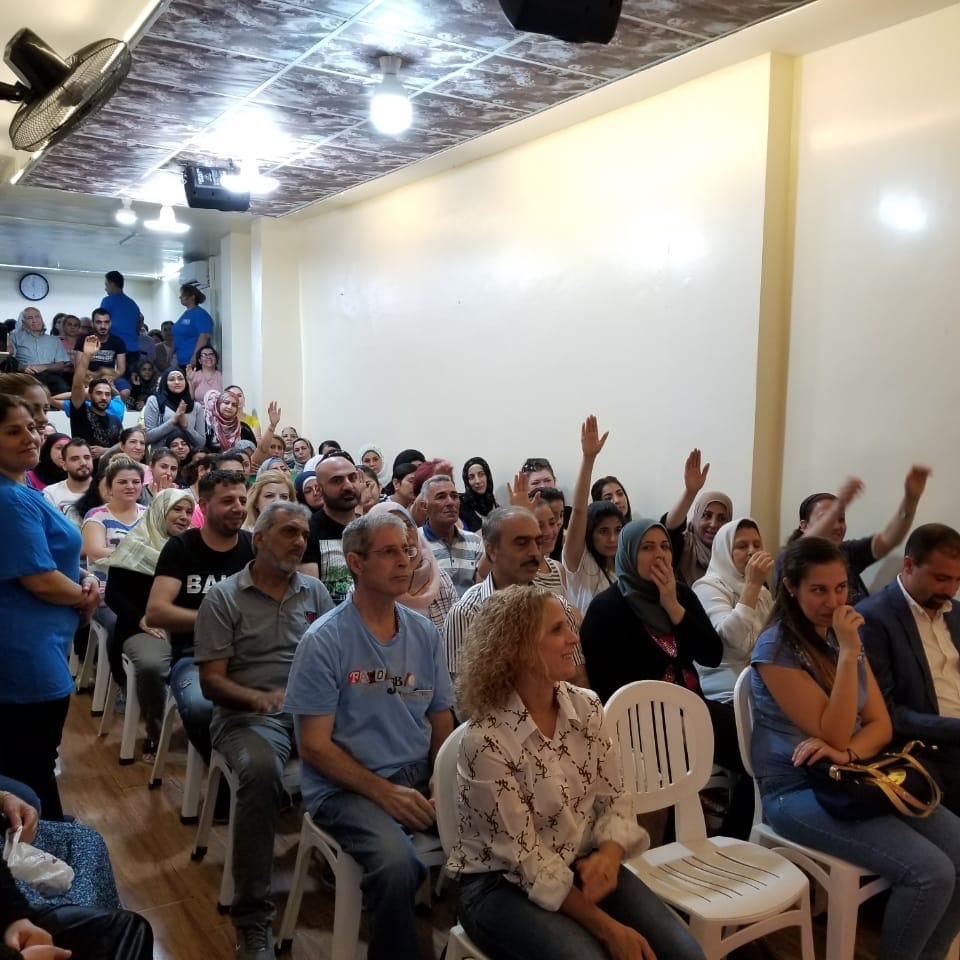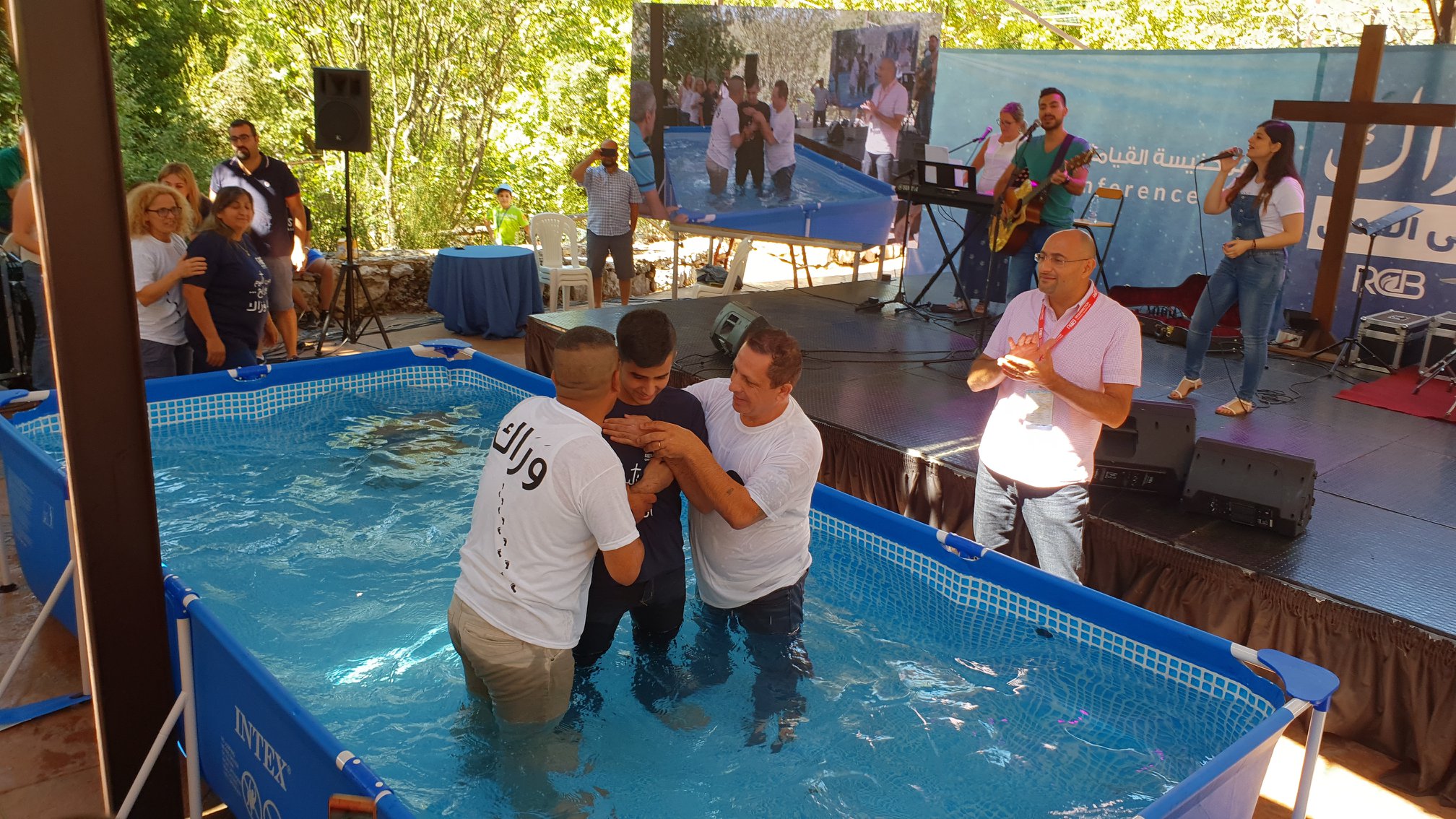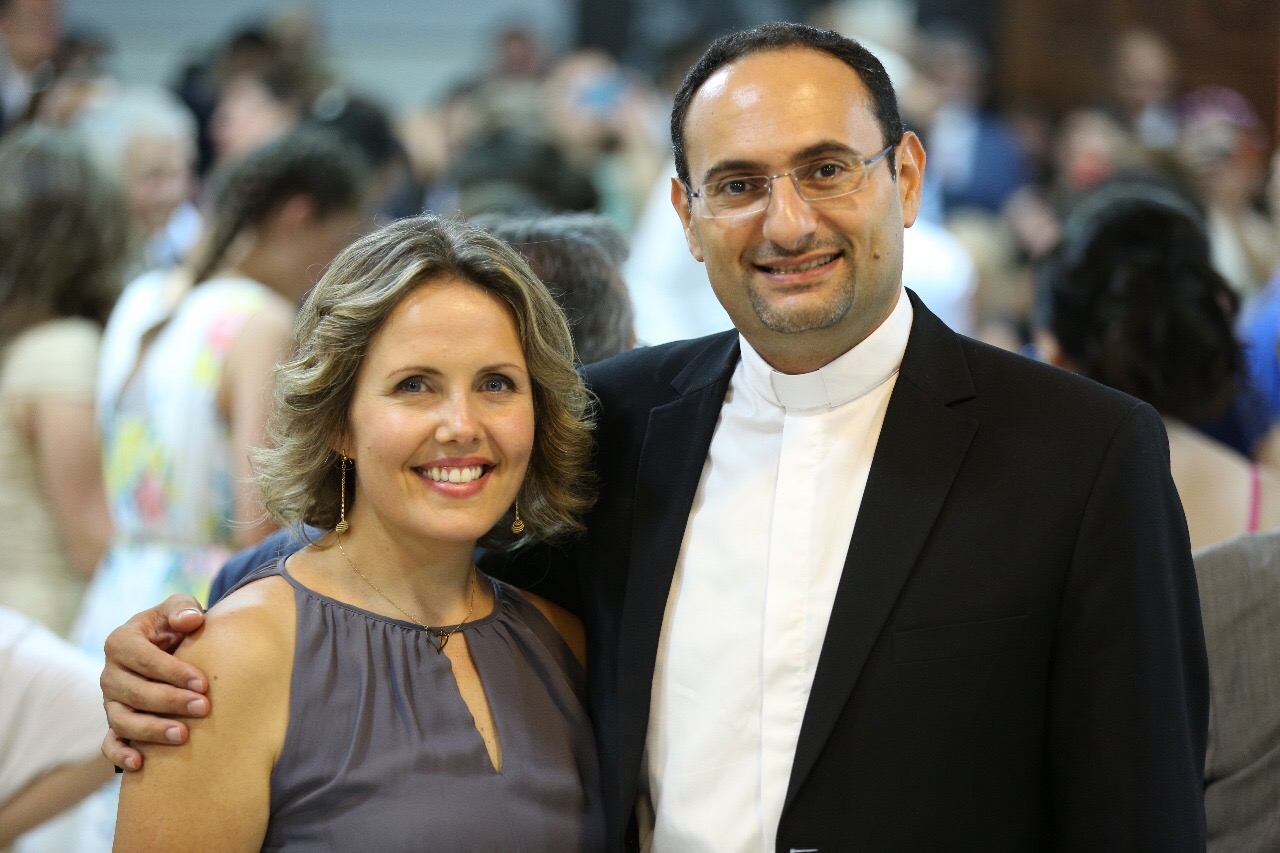In his book Following Jesus in Turbulent Times (published under Langham Global Library), graduated Langham Scholar Hikmat Kashouh shares how his church in the Lebanon follows Jesus by serving Syrian refugees. His book will inspire believers around the world to love, serve and disciple displaced people from Muslim backgrounds.
Hikmat spoke to Langham Partnership UKI about the extraordinary work Resurrection Church Beirut has done amongst refugees.
He explained that the influx of 1.5 million Syrian refugees into Lebanon, which has a population of four million, was “tough on the whole country”.
‘Totally in despair’
“As a Church we had Syrians come to us and they were totally hopeless. They had lost their homes, lost their land, lost their properties.
“The people are traumatised, they’ve seen their loved ones being killed, hurt, tortured, sexually abused, and they have come broken, totally in despair.
“They have no food, they have no place to stay, no clothes except the ones they are wearing, they don’t have mattresses, they don’t have pillows, they have no place to sleep. We had to join hands with a number of churches to be able to serve them.”

Hikmat Kashouh’s Resurrection Church Beirut has grown to over 2,000 believers, with an emphasis on discipleship.
Opportunity to transform
The particular challenges Hikmat and his church faces in serving these refugees are “huge”:
“They are spiritually hurt, they are angry with God, they are emotionally broken, traumatised by what they’ve seen. They carry the history with them and some of them are sick physically in addition to spiritually and emotionally.
“So the challenge is how as a church you can serve holistically those who are in great need, in an efficient and sustainable way. We saw this challenge as an opportunity to grow to serve to be like our master, to love, an opportunity to transform others.”
God at work

Hikmat’s church members were taught and shown what it means to love unconditionally.
Hikmat said Church members initially complained when the refugees started attending:
“There’s a long history and memories come back to mind. People said ‘I don’t want my kids to play with these kids’, or ‘I don’t want to go to the toilets where they go’. They were a little bit suspicious, some of them were concerned.
“And I understand why: some of them are mothers, they care for their children. It took them some time to see the big picture. But through teaching, through listening, we helped some of our members to understand that now it’s God at work. We needed to help one another to be able to work efficiently and effectively and serve those God is bringing into our lives.
“It was a huge transformation in their lives, when they saw us as leaders bowing down and washing the feet of those who were once our enemies.
Journey with Christ
“Doing these acts of love and servanthood made a huge difference in the heart of our congregation and community.”
Hikmat offered advice on how to reach Muslims with the good news of Jesus:
“Become vulnerable. It’s always costly to love, so when you act with love there is something you might lose, and it’s sometimes challenging. Some people hate what we’re doing; I’ve even been threatened.
“But love is greater than life. It’s a decision, it’s a journey with Christ who is teaching us to love unconditionally and it’s really by doing it, not just saying it.”
Unconditional love

Many refugees have been transformed by the good news of Jesus, after Hikmat’s church showed them love.
Hikmat realised that it was only when the Syrians came to his Church that the members could live out ‘unconditional love’, which they knew about in their heads.
“It’s costly, so we had to learn how to love them although they’re different.
“Sharing Christ without love doesn’t help. The best way to reach out to Muslims is by really being loving, and at the same time bold, faithful, say the truth as it is, with no compromise, after you have built a relationship of love and care.
“I get asked by Westerners ‘How can we serve our Muslim families around us?’ I ask them: ‘Have you ever visited their homes?’ and the answer everywhere is ‘No, they have never invited us!’
Privilege to host
“When in the Muslim/Arab world, you invite yourself to other people’s homes. When you enter their home, you are giving them the privilege to become the host in a foreign land. They can sit in the high place and be the leader.
“You are there willing to sit anywhere they ask you to, to listen, to learn their culture. This is so honouring and gives you the opportunity to share, to love and to witness.”

Hikmat Kashouh (right) with his wife Krista (left). Hikmat was funded by Langham to study for a PhD in Birmingham in 2004.
Once the war in Syria ends, Hikmat’s prayer is that the Syrian and Iraqi people who are now Christians and are being discipled will return home:
“Maybe they will start churches, plant churches, grow and make disciples. Maybe they will grow the work of the kingdom in their home villages and cities”.
Click here to buy a copy of Following Jesus in Turbulent Times.
Why not also give a copy to your pastor?
Read more of Hikmat’s testimony in this Author Spotlight.
